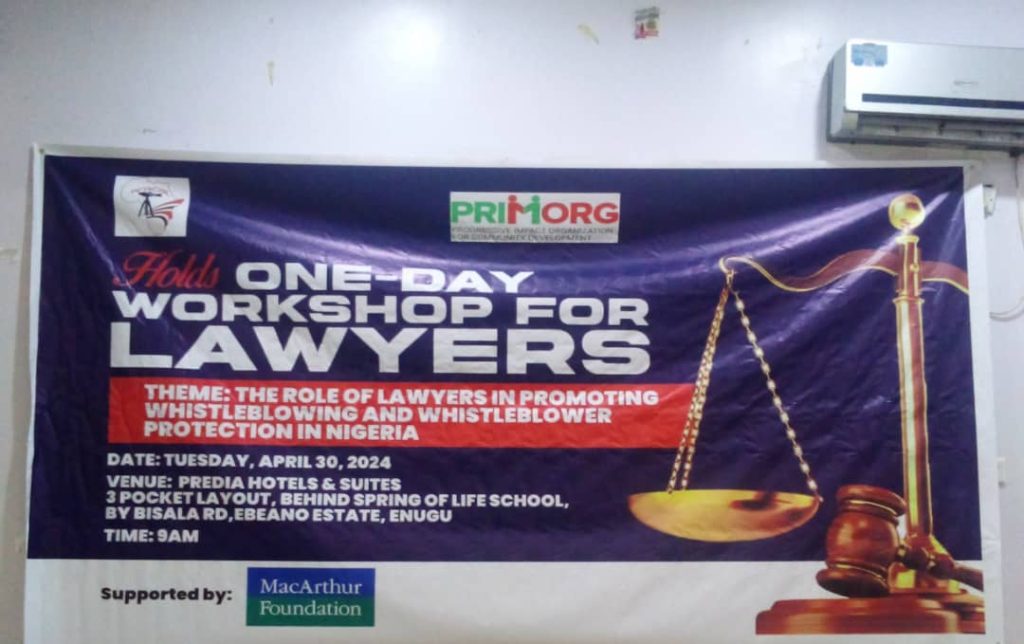Ben Ezechime, Enugu
The African Center for Media and Information Literacy (AFRICMIL) has advocated the intervention of Lawyers to protect whistleblowers in the country.
Dr Chido Onumah, Coordinator of AFRICMIL, a Non-Governmental Organisation (NGO), said this on Tuesday in Enugu at a one-day workshop for “Lawyers on whistleblowing and whistleblower protection in Nigeria.”
He said that whistleblowing was a legal process which means that every whistleblower requires the services of a lawyer.
“We are mindful of this fact, and that is why over the years we have been collaborating with people, especially lawyers, who are interested in public interest litigation.
“Lawyers, who are interested in defending citizens/workers, who suffer retaliation for blowing the whistle in the interest of the public,” he said.
Onumah said apart from defending victimised whistleblowers AFRICMIL was also trying to cultivate “a team of Lawyers, who will offer their professional skills for the enactment of law to protect whistleblowers in Nigeria.”
According to him, “We already have an MoU with SERAP in this regard but we would like to work with more Lawyers outside the current arrangement,” he said.
He also said the workshop was aimed at enhancing participants’ understanding of the whistleblowing ecosystem and its general principles and best practices.
In his contribution, Mr Godwin Onyeacholem, Programme Manager, AFRICMIL, said there was need for every organisation in the country to have a whistleblowing desk where staff can report corruption cases secretly.
He said that Nigerians have refused ownership of whistleblowing as their project, saying that many Nigerians were afraid of reporting corruption going on in their establishments due to fear of victimisation.
According to him, “a survey conducted by AFRICMIL sometime ago showed that 98 per cent of Nigerians believed that corruption is Nigeria’s problem.
“However, they said they cannot report it because of lack of adequate law to protect victims of whistleblowing.”
One of the resource persons, Mr Olu Omotayo, said that people shy away from reporting corruption in Nigeria because there is no law protecting whistleblowers.
“Because there is no law protecting whistleblowers any whistleblower is at his/her own risk,” Omotayo said.

